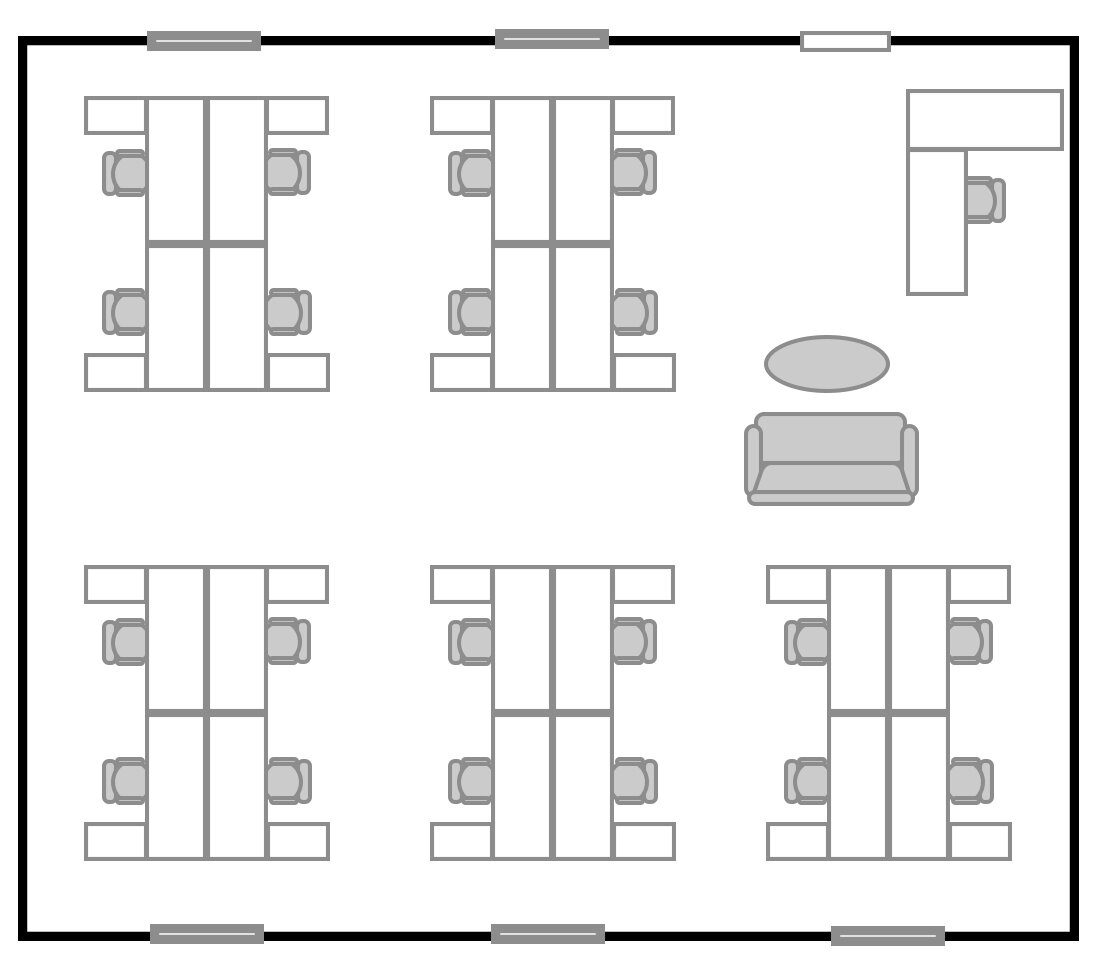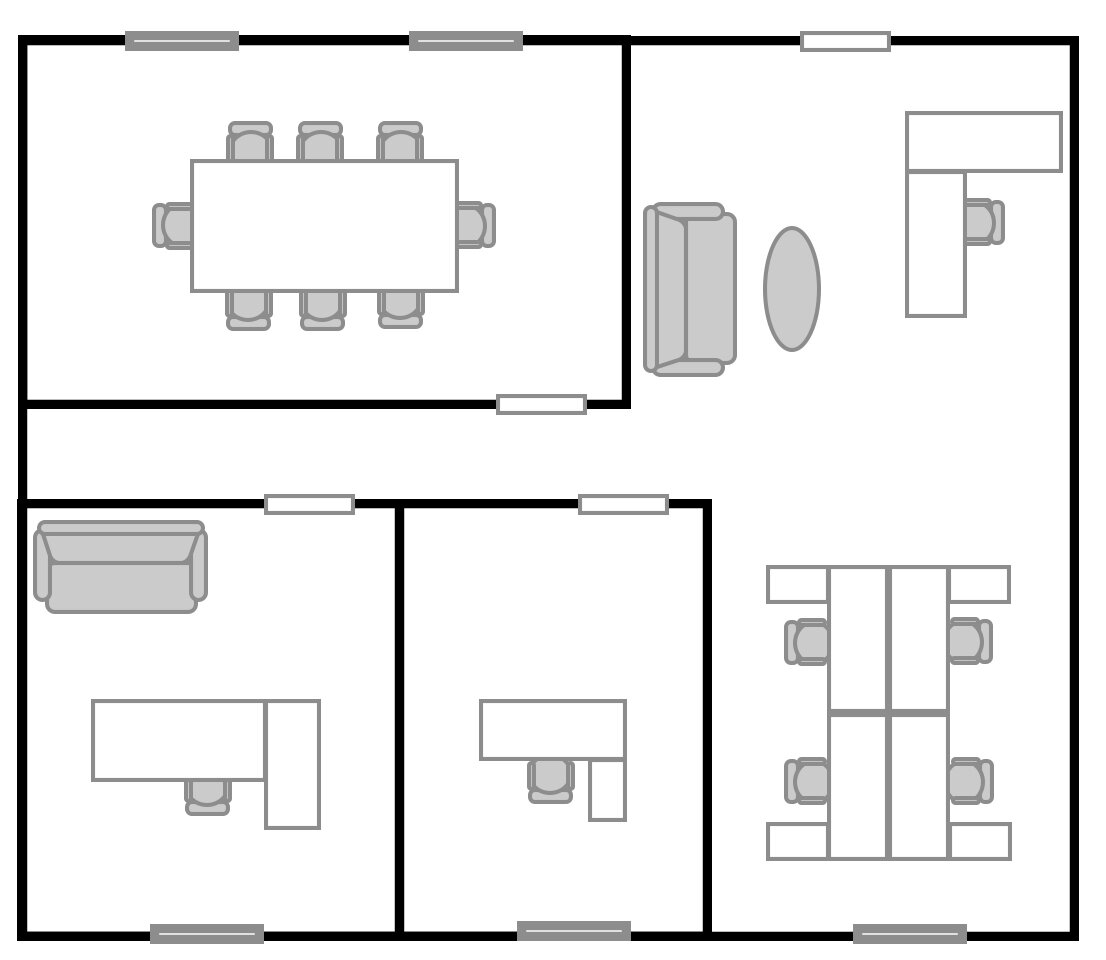
Office Environments.
We boil it down to three types.
The secret is just knowing what type of people need to fill the space.
Learn the Different Types of Office Environments.
Knowing office layouts can be confusing, but it is actually as simple as 1, 2, 3:
Open Environment: The office is mostly open, meaning tables or small cubicles. Many start up businesses prefer this set up as it offers a high degree of flexibility and micro collaboration.
Few walls and office barriers
Seating usually assigned and enables easy communication
High distraction and lack of privacy levels
High employee density with low square feet needs
High level of informal communications and productivity
Low construction furniture needs
Easy to reconfigure and grow
Increased density can spread germs
Collaboration Environment: This office is a mix, but a focus on conference rooms and collaboration spaces. Private offices are deprioritized. A favorite for growth companies, balancing growth with team collaboration.
Balance of open space, walls and conference rooms
Seating can be shared and enables easy communications
Medium distraction, with space for brainstorming with somewhat unstructured spaces
Teams can move into rooms to lower distractions and increase privacy
Medium constructions and furniture needs
Harder to reconfigure and grow
Increased density can spread germs
Private Environment: This office is mostly private offices with few alternative spaces. Private offices and conference rooms are prioritized. A favorite for professional service and privacy concerned companies such as legal, finance and human relations.
Typically rooms are dedicated to a single users or very small groups
High need for walls and barriers
Ideal for sensitive and personal types of work
High level of privacy
High cost for construction and furniture
Hard to reconfigure and grow
Low density and can mitigate the spread of germs




